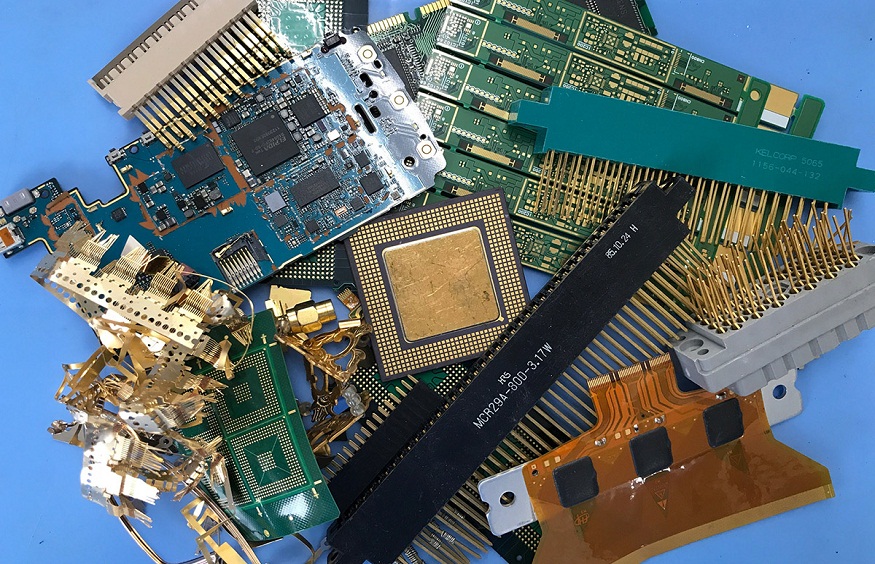Recycling precious metals provides a profitable way to repurpose waste resources and support environmental sustainability. Nonetheless, it’s crucial to comprehend the procedure and put good plans into place if you want to maximise profits in the precious metal recycling industry. The following advice will help you recycle precious metals successfully:
1. Understand Your Metals
For recycling to be effective, it is essential to comprehend the different kinds of precious metals and their market worth. Precious metals that are frequently used are palladium, platinum, silver, and gold. To determine the exact worth of your scrap materials, familiarise yourself with their properties, degrees of purity, and market values.
2. Get Quality Recycle Materials
The calibre of your scrap materials strongly impacts the worth of your recycled metals. Make an effort to locate premium resources from reputable vendors, such as industrial scrap, electronic trash, and automobiles nearing the end of their useful lives. Steer clear of materials with low precious metal concentration or severe contamination since they may produce poorer returns.
3. Make an Investment in Equipment
Purchasing the appropriate tools and equipment is crucial for effective precious metal recycling. Metal recovery rates may be increased, and the recycling process may be streamlined with the use of equipment, including shredders, crushers, smelters, and refining systems. Select recycling equipment that meets your unique requirements and produces high-quality results.
4. Use Efficient Sorting Methods
Efficient sorting processes are essential for separating valuable metals from other materials. Techniques used to detect and separate precious metals include density-based sorting, magnetic separation, and hand sorting. Sorting efficiently maximises the value of recovered resources while reducing waste.
5. Stay Updated on Industry Trends
To maximise the results of your recycling activities, stay informed about market trends and shifts in the price of precious metals. Monitor metal prices, the dynamics of supply and demand, and any potential effects on the world economy. Modify your recycling tactics as necessary to optimise returns in reaction to market changes.
6. Establish Bonds with Buyers
Maximising returns requires forging solid bonds with trustworthy precious metal purchasers. Collaborate with purchasers that provide reasonable costs, clear transactions, and dependable terms of payment. Developing enduring connections with purchasers might guarantee a consistent stream of revenue and give access to affordable prices.
7. Pay attention to Innovation and Efficiency
Optimising profits from precious metal recycling requires innovation and efficiency. Always seek methods to streamline your operations, cut expenses, and raise the rate at which metal is recovered. Adopt best practices, recycling methods, and innovative technology to maintain your competitive edge in the market.
8. Verify Regulation Compliance
Adherence to rules concerning the environment, health, and safety is vital for the prosperity of your recycling enterprise. Learn about the laws that apply to the processing, storing, and disposal of scrap metal and precious metals. To prevent fines or penalties, make sure your activities meet or beyond regulatory standards.
9. Educate Your Group as Well as Yourself
Keep up with developments in the recycling of precious metals, and make continual investments in your team’s and your own education and training. Staff that is knowledgeable and trained is necessary for recycling operations to be successful. In order to optimise output and reduce hazards, provide instruction on safe handling practices, equipment operation, and safety procedures.
10. Adopt Sustainable Behaviours
Adopting sustainable methods improves your recycling company’s revenue and reputation while also helping the environment. Implement policies to limit waste, reduce energy use, and encourage recycling and reuse across your business. Making sustainability a top priority can help you stand out from the competition and draw in eco-aware clients.
Conclusion
The recycling of precious metals needs to be done with careful planning, smart techniques, and a dedication to sustainability and quality. Through adherence to these guidelines and ongoing process enhancements, you may optimise profits and establish a prosperous and ecologically conscious recycling enterprise.




